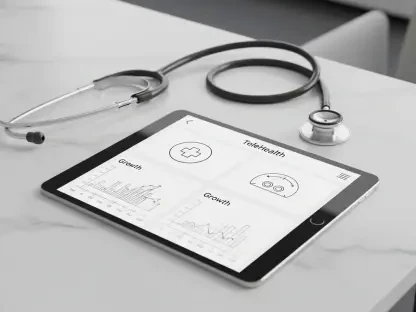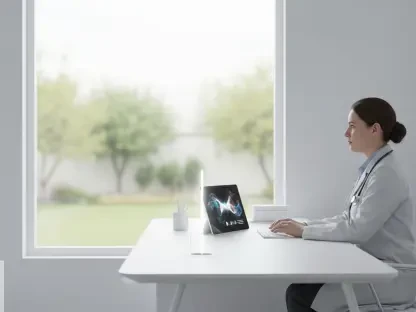Overview of Nursing Education and Clinical Collaboration
In the dynamic landscape of healthcare education, the pressing need for robust clinical partnerships has never been more evident, with over 80% of nursing programs nationwide relying on real-world training to prepare students for the challenges of patient care. At Northern Illinois University (NIU) School of Nursing, the commitment to forging strong ties with healthcare systems stands as a cornerstone of its mission to develop practice-ready professionals. This dedication addresses a critical industry challenge: ensuring that graduates are equipped to meet the complex demands of modern medical environments from day one.
The current state of nursing education reveals a growing emphasis on collaboration between academic institutions and clinical entities. Such alliances are vital for aligning curricula with the evolving needs of healthcare providers, especially as patient care becomes increasingly intricate. NIU has positioned itself as a leader in this arena by prioritizing partnerships that bridge theoretical learning with practical application, setting a benchmark for others in the field.
This report delves into the strategies employed by NIU to cultivate and sustain these essential relationships. From stakeholder engagement to innovative teaching methods, the analysis highlights how the university navigates challenges and leverages community involvement to enhance its programs. The focus remains on creating a seamless transition for students into professional roles, a goal shared across the nursing education sector.
Detailed Analysis of NIU’s Clinical Partnership Strategies
The Critical Role of Collaborative Networks in Nursing Training
Clinical partnerships form the backbone of effective nursing education at NIU, providing students with hands-on experiences that are indispensable for skill development. These collaborations ensure that academic preparation mirrors the realities of healthcare settings, allowing graduates to step into roles with confidence and competence. By working closely with hospitals and medical systems, the university guarantees that its teachings remain relevant to current industry standards.
A significant aspect of these partnerships lies in their ability to address workforce shortages and specialized care demands. Through direct interaction with health system leaders, NIU gains insights into pressing needs, such as the growing requirement for nurses trained in critical care or telehealth. This alignment not only benefits students but also supports healthcare providers by supplying a steady stream of well-prepared professionals ready to tackle these challenges.
The broader impact of such synergy extends beyond individual institutions, influencing regional healthcare quality. As NIU continues to refine its approach, the ripple effect is seen in improved patient outcomes and enhanced trust between educational and medical sectors. This model of cooperation serves as a blueprint for other programs aiming to strengthen their own clinical connections.
Rebuilding Bonds Through Stakeholder Engagement
Rekindling Annual Traditions for Connection
One of NIU School of Nursing’s key initiatives involves reviving meaningful traditions like the stakeholder breakfast event, a platform designed to reconnect with clinical partners after disruptions caused by external factors. This gathering facilitates open dialogue, allowing the university to share updates on its programs while gaining valuable feedback from healthcare leaders. The event underscores a renewed commitment to fostering enduring relationships that benefit all parties involved.
Held annually, this tradition had been paused during recent global challenges, making its return a significant step toward rebuilding trust and collaboration. The focus during these meetings is not only on past achievements but also on current workforce trends, ensuring that discussions remain forward-thinking. Health system representatives have the opportunity to voice their expectations, shaping how NIU prepares its students for immediate integration into clinical roles.
The success of this initiative lies in its ability to create a shared vision among stakeholders. By prioritizing face-to-face engagement, NIU demonstrates a proactive stance in maintaining partnerships that are both strategic and personal. This approach sets a precedent for how academic institutions can effectively reconnect with industry partners after periods of disconnection.
Leadership Perspectives and Alumni Contributions
Leadership within NIU plays a pivotal role in championing the importance of clinical partnerships, with Interim Chair Jeanette Rossetti emphasizing their necessity for preparing students to handle complex patient care scenarios. Rossetti’s insights highlight a deep understanding of how collaborative efforts translate into better educational outcomes, ensuring that graduates are not just knowledgeable but also adaptable to real-world pressures.
Adding to this narrative is the involvement of alumni like Peggy Norton-Rosko, a 1987 graduate and Chief Nurse Executive, who delivered a keynote address at the recent stakeholder event. Norton-Rosko credits her NIU education as the foundation of her career success, advocating for sustained engagement between alumni and the university. Her participation exemplifies how past students can contribute to shaping innovative partnership models that serve both academic and healthcare goals.
Alumni engagement is emerging as a powerful trend, with figures like Norton-Rosko illustrating the mutual benefits of staying connected. Their professional expertise and personal ties to NIU create unique opportunities for mentorship and resource sharing. This growing network of involved graduates enhances the university’s ability to align its programs with industry advancements, reinforcing the value of lifelong relationships.
Innovating Educational Approaches for Real-World Readiness
NIU’s dedication to bridging the divide between classroom instruction and clinical practice is evident in its curriculum design, which prioritizes practical readiness. A notable presentation titled “Bridging the Gap: Clinical Judgment and Practice Readiness in Nursing Education” by faculty members Jessica Madrigal and Janna Woodard sheds light on these efforts. Their session detailed specific teaching strategies that cultivate critical thinking and decision-making skills among students.
These educational innovations ensure that NIU graduates enter the workforce with a strong sense of confidence and the ability to navigate high-pressure environments. By simulating real-world scenarios within the classroom, the university prepares students for the unpredictable nature of healthcare delivery. This focus on experiential learning is a direct response to feedback from clinical partners about the competencies most needed in new nurses.
The impact of such initiatives is measurable in the seamless transition of NIU students into professional roles, a trend supported by data showing high employment rates among graduates. As healthcare continues to evolve with new technologies and treatment protocols, the university’s adaptive teaching methods remain a key differentiator. This commitment to practice readiness positions NIU as a forward-thinking player in nursing education.
Navigating Obstacles in Partnership Sustainability
Maintaining strong clinical partnerships is not without challenges, as logistical hurdles and differing priorities between academic and healthcare entities can create friction. Issues such as scheduling conflicts for clinical placements or limited resources for joint initiatives often test the resilience of these collaborations. NIU acknowledges these barriers and actively seeks solutions to ensure continuity.
External disruptions, including global health crises, have historically impacted traditional engagement efforts, necessitating creative approaches to sustain connections. The university has responded by leveraging virtual platforms for communication and exploring flexible partnership models that accommodate changing circumstances. This adaptability highlights a strategic mindset focused on long-term relationship building despite unforeseen obstacles.
Open dialogue remains a cornerstone of overcoming these challenges, with NIU prioritizing transparent discussions to align goals with its partners. Regular feedback loops and joint planning sessions help address potential misalignments before they escalate. Such proactive measures ensure that collaborations remain robust, even in the face of industry-wide constraints.
Community Engagement and Volunteer Support
Beyond formal partnerships, NIU places significant value on community involvement, issuing a call for volunteers to contribute their time and expertise to the nursing program. This initiative strengthens local ties by inviting diverse stakeholders to play an active role in student development. The university views these contributions as integral to its mission of delivering excellence in education.
Volunteer efforts provide a unique avenue for enhancing the learning environment, offering students exposure to varied perspectives and real-world insights. Whether through guest lectures or mentorship opportunities, community members help enrich the program in ways that formal curricula cannot. This approach fosters a sense of shared responsibility for the future of nursing.
The broader impact of community engagement is seen in the strengthened reputation of NIU as a hub for collaborative growth. By welcoming diverse contributions, the university not only supports its students but also builds a network of advocates invested in its success. This synergy between community and academia amplifies the overall effectiveness of the nursing program.
Future Trends and Opportunities in Clinical Partnerships
Looking ahead, NIU envisions a future where clinical partnerships evolve to incorporate emerging healthcare technologies and address shifting workforce demands. The integration of tools like artificial intelligence in patient care training presents new avenues for collaboration with tech-savvy healthcare providers. This forward-looking perspective ensures that the university remains at the forefront of industry advancements.
Another promising area lies in addressing specialized nursing shortages through targeted partnership programs, a focus that aligns with projections of increased demand in areas like geriatric and mental health care from the current year through 2027. NIU plans to work closely with clinical partners to develop tailored educational tracks that meet these specific needs. Such strategic planning underscores a commitment to relevance in a changing landscape.
Proactivity defines NIU’s approach to sustaining relationships, with ongoing efforts to anticipate challenges and seize opportunities for growth. By fostering a culture of innovation and responsiveness, the university aims to set new standards for clinical collaboration. This vision positions NIU as a key influencer in shaping the trajectory of nursing education over the coming years.
Reflections and Next Steps for Nursing Excellence
Reflecting on the comprehensive strategies employed by NIU School of Nursing, it is clear that stakeholder engagement, alumni involvement, and innovative education play pivotal roles in building strong clinical partnerships. These efforts cultivate a curriculum that is responsive to healthcare needs while supporting student and professional growth. The university’s ability to adapt to challenges and revive meaningful traditions stands as a testament to its dedication.
As a path forward, NIU plans to deepen its collaborations by exploring joint research initiatives with healthcare systems to address pressing industry issues. Establishing more formalized alumni mentorship programs is also on the agenda, aiming to create structured support for current students. These steps promise to further solidify the foundation for producing practice-ready nurses.
Additionally, investing in technology-driven training modules is identified as a critical next move to keep pace with healthcare advancements. By continuing to prioritize open communication and community involvement, NIU aims to ensure that its partnerships remain dynamic and impactful. These actionable strategies offer a roadmap for sustained success in nursing education and industry collaboration.









